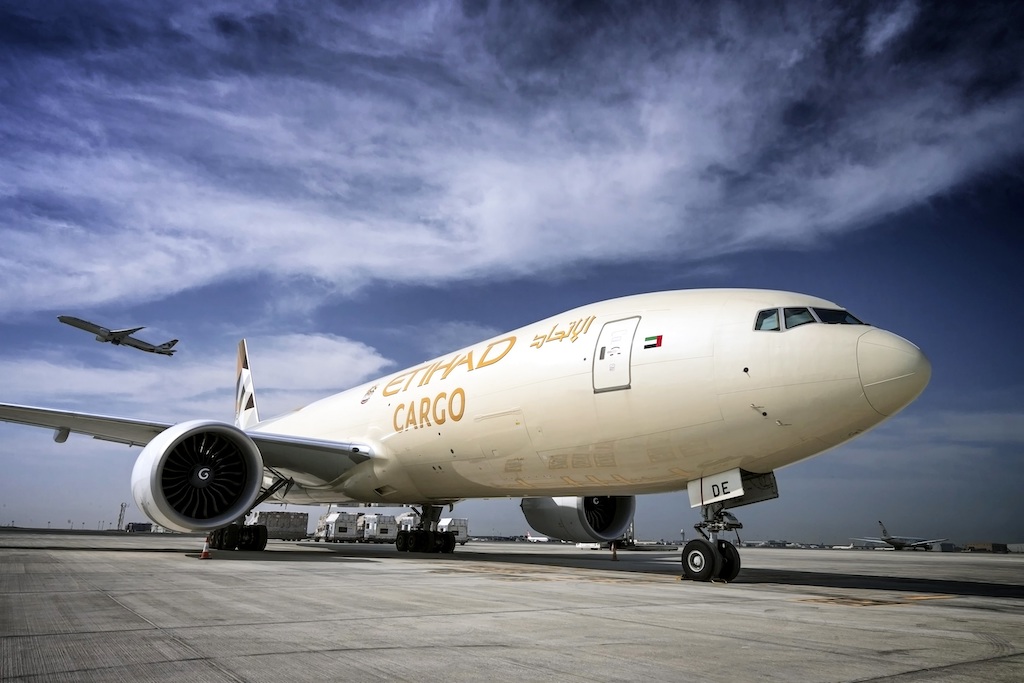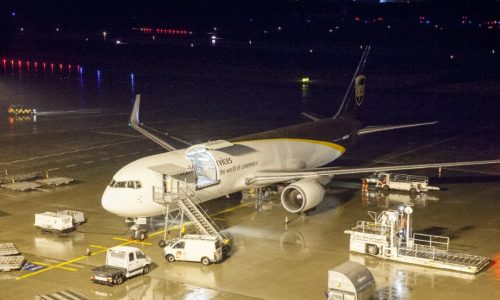
Etihad Airways’ half-year 2020 cargo revenues rose 37% or $130m to $490m, compared to the same period in 2019, with 254,345 tonnes carried, driven by an increase in demand and “a spike in cargo fares”.
The core group operating result for the first three months of the year improved by 34%, despite the onset of COVID-19, with a 12% reduction in passenger numbers, and a 9.5% reduction in ASK.
However, the airline saw a significant decrease in Q2 operating revenues following COVID-19 flight suspensions, with 70% of its fleet grounded. This period registered a 99% drop in passenger numbers and a 95% drop in ASK compared to Q2 2019.
Tony Douglas, Group Chief Executive Officer, Etihad Aviation Group, said: “Etihad faced a set of enormous and unpredictable challenges in the first six months of the year. We started 2020 strong, and recorded encouraging results as part of our continuing transformation programme.
“This left us in a relatively robust position when COVID-19 hit, allowing us to act with agility, and to mobilise all available resources as the crisis deepened, taking major steps to reduce costs through a wide-reaching series of measures.
He added: ‘By September, we aim to increase our worldwide flights to half our pre-COVID-19 capacity. Looking forward, we rest assured that the UAE is leading the way in the research for a vaccine against COVID-19.”
Etihad operated up to 40 of its fleet of 97 passenger aircraft in Q2, including Boeing 787 Dreamliners, 777-300ERs, and Airbus A320 family aircraft as belly-hold cargo freighters to complement Etihad Cargo’s operational fleet of six 777-200F freighters.
Between 25 March and 15 June, over 640 special passenger flights were operated to 45 online and offline destinations, using the passenger cabins of these aircraft to fly foreign nationals out of the UAE, and to bring UAE nationals back home.
| H1 2020 results | Q1 | Q2 | H1 total |
| Passenger Revenue (US$ billion) | 0.95 | 0.06 | 1.01 |
| Cargo Revenue (US$ billion) | 0.17 | 0.32 | 0.49 |
| Operating Revenue (US$ billion) | 1.23 | 0.44 | 1.67 |
| Core Operating Result (US$ billion) | (0.24) | (0.52) | (0.76) |
| Total passengers (million) | 3.43 | 0.03 | 3.47 |
| Available seat kilometres (billion) | 22.45 | 1.24 | 23.69 |
| Seat load factor (%) | 74% | 16% | 71% |
| Cargo tonnage (leg tonnes ‘000) | 143.3 | 111.1 | 250.5 |
Etihad and Etihad Cargo operated special humanitarian services to 60 cities around the world, 40 of which are not currently served by the airline’s passenger or cargo network of flights.
Concluded Douglas “The clear focus moving forward is on adapting our transformation plan to reflect new market conditions, but without changing our overall objectives or sustainability goals and commitments.
“We anticipate some continued volatility for a while to come, as the world strives to put an end to COVID-19, and as testing methodologies and protocols evolve to become the new norm.
“We know that markets are certain to rebound and the world will rediscover the wonder of flying once more. When it does, our guests will value the Etihad Wellness proposition more than ever, and we are best positioned to deliver the security, assurance, and best-in-class experience they have come to expect from Etihad as a true full-service airline.”

